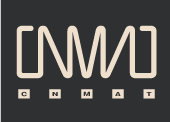CNMAT Controller Library
The CNMAT Controller Library is a diverse collection of gesture controllers representative of the last 100 years of devices used for musical control.
The library includes MIDI controllers, both conventional and "alternate", game controllers, computer pointing devices, USB hid devices, research prototypes, and historically significant, rare and unique devices such as David Wessel's Slabs and Max Mathew's Radio Drum.
The Controller Library serves CNMAT's three, integrated axes as follows:
Research
===
Devices in the library serve both as exemplary inspirations for new controller design and as working components in experimental assemblages. The library is a repository for experimental designs developed at CNMAT, UCB and beyond to further future research.
Production
===
Composers and musicians associated with CNMAT use the devices to evaluate their value in projects. This informs the curation of a separate loan pool of devices available for realization of projects. This approach minimizes wear and tear on the core collection while increasing the value and salience of the production pool.
Education
===
Faculty, staff and GSI's are authorized to take devices from the collection into classroom and lecture demonstrations. Such demonstrations are common every semester and include recent demonstrations by David Wessel at the Music Department's conference "From Bone Flute to Autotune", and Adrian Freed's demonstrations at the Berkeley Institute for Design, and in Kimiko Ryokai's C262 class "Theory and Practice of Tangible User Interfaces".
Support
===
The core devices of the controller library are donations and loans from David Wessel and Adrian Freed and commercial controller builders such as Livid Instruments and Josh Boughey. Funded by unrestricted gift funds Yotam Mann produced the on-line database for roughly a third of the devices as an undergraduate project.
Future Work
===
The focus for 2015 is to document, organize and develop software for the controller library so it can better serve undergraduate classes with initial focus on Music 158B , where undergraduates will develop complete, playable musical instruments by combining controllers from the library with sound synthesis and processing software they write based on techniques learned in Music 158A.
The required work includes: completing the on-line database for the current library, writing "o." wrappers to unify access to date from the controllers and the construction of protective cases and packaging to protect controllers from more extensive use.
The "o." wrapper work will turn this controller collection into the most diverse and premium collection for future Digital Humanities studies of musical instrument gesture.
